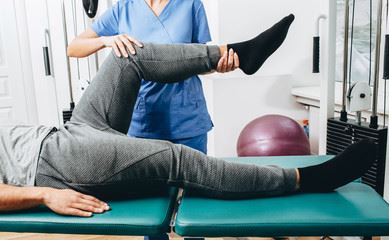
Many older adults suffer from chronic arthritic knee pain. Over 700,000 Americans undergo total knee replacement surgery every year. While most patients benefit from knee replacement, up to a third of patients report persistent post-operative pain.
Pester et al. [Pain Medicine] conducted a pilot trial to test whether a brief mindfulness-based program reduces postoperative pain levels in a sample of patients undergoing total knee replacement.
The study recruited a sample of 22 Boston-area patients (age = 68 years; 55% female; 82% Caucasian) planning to undergo knee replacement and willing to participate in a mindfulness training intervention with a matched control sample of 22 Boston-area patients (age = 66 years; 55 % female; 91% Caucasian) participating in a larger knee replacement study not involving mindfulness training.
The samples were matched on age, arthritis diagnosis, stable medication dosage, and English language proficiency as well as the absence a variety of comorbid conditions (substance abuse, sleep disorder, autoimmune disease, neuropathy, dementia, and psychosis).
The mindfulness program was called Mindfulness-Based Cognitive Behavioral Therapy and was delivered in four single-hour sessions. The first and last sessions were delivered in person, and the second and third sessions were delivered via telephone. The first two sessions were delivered pre-surgically and the last two sessions post-surgically.
All sessions were taught by a clinical pain psychologist. The program included in-session practice and homework involving the body scan, sitting meditation, and lovingkindness meditation as well as cognitive-behavioral psychoeducation focusing on pacing physical activity, coping strategies, and avoiding catastrophizing about pain. The control group received knee surgery care treatment as usual.
Participants were assessed at baseline, six-weeks, and 3-and-6 months post-surgically on self-report measures of pain severity, catastrophizing, and interference with activities of daily living as well as measures of depression, and anxiety.
The results indicated that the mindfulness group showed a significantly lower pain score than controls at six weeks (partial η2=.12) with a non-significant trend towards reduced pain interference in their daily activities compared to controls (partial η2=.08).
An analysis of within-group effects at six weeks showed the mindfulness group experienced significantly reduced pain levels compared to their own baseline (partial η2=.33) but controls did not (partial η2=.00).
The groups did not differ at 3- and 6-month follow-up when both groups showed significant large reductions in pain over baseline. This was to be expected given most post-surgical pain resolves on its own over time.
The mindfulness group showed a significant reduction in pain catastrophizing scores at six weeks compared to their own baseline, but the control group did not. There were no between group or within group changes in depression and anxiety.
Reductions in pain catastrophizing scores were significantly associated with reductions in pain severity scores (r=.51).
The study shows that brief mindfulness training that includes elements of cognitive-behavioral therapy can reduce post-operative pain and speed recovery immediately after total knee replacement surgery. It appears this effect is due, at least in part, to a reduction in pain catastrophizing.
The study is limited by its lack of randomization, small sample size, and reliance on a standard care control.
Reference:
Pester, B. D., Wilson, J. M., Yoon, J., Lazaridou, A., et al. (2022). Brief Mindfulness-based Cognitive Behavioral Therapy is Associated with Faster Recovery in Patients Undergoing Total Knee Arthroplasty: A Pilot Clinical Trial. Pain Medicine.
Link to study